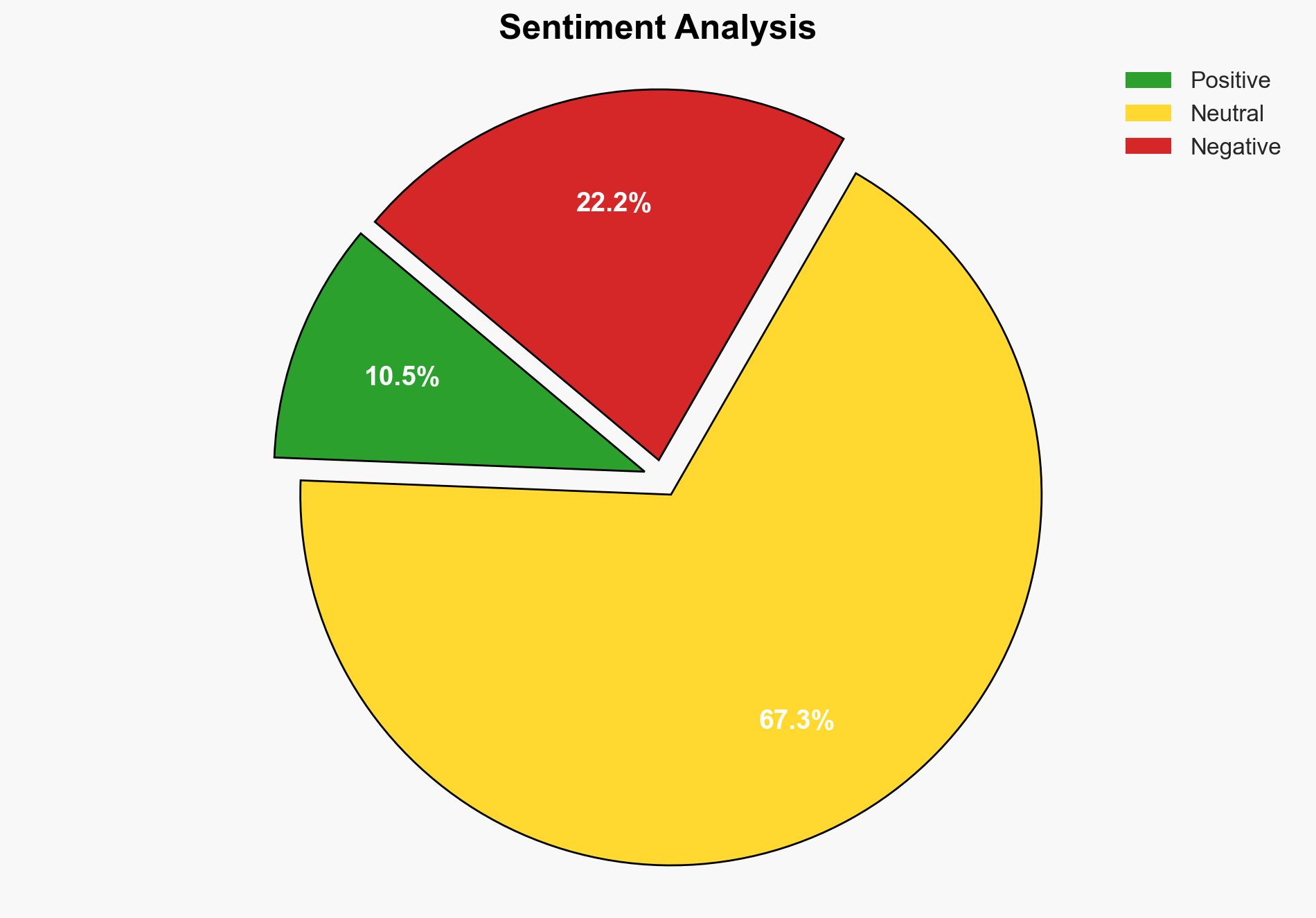Trump Ratchets Up Threats Against Iran Over Houthi Ties After Ordering Strikes Against Yemeni Rebel Group – Forbes
Published on: 2025-03-17
Intelligence Report: Trump Ratchets Up Threats Against Iran Over Houthi Ties After Ordering Strikes Against Yemeni Rebel Group – Forbes
1. BLUF (Bottom Line Up Front)
The recent escalation by Donald Trump against Iran, following military strikes on the Houthi rebel group in Yemen, marks a significant increase in tensions in the Middle East. The strikes were in retaliation for attacks on the Red Sea, attributed to the Houthis, who are reportedly backed by Iran. This development poses substantial risks to regional stability and international maritime security. Immediate diplomatic engagement and strategic military readiness are recommended to mitigate potential escalations.
2. Detailed Analysis
The following structured analytic techniques have been applied for this analysis:
General Analysis
The escalation by Donald Trump is a response to the perceived threat posed by the Houthi rebel group’s actions in the Red Sea, which have been linked to Iranian support. The Houthis have been involved in a prolonged conflict in Yemen, with Iran allegedly providing military and financial support. This situation is further complicated by the ongoing rivalry between Iran and Saudi Arabia, which supports the Yemeni government. The strikes ordered by Trump, involving air and naval forces, underscore a decisive shift in U.S. policy towards a more confrontational stance against Iranian influence in the region.
3. Implications and Strategic Risks
The heightened tensions between the U.S. and Iran could lead to broader regional conflicts, affecting global oil supply routes and international trade. The possibility of retaliatory actions by the Houthis or Iran against U.S. interests or allies in the region remains high. Additionally, the involvement of other regional powers, such as Saudi Arabia, could exacerbate the conflict, leading to a wider geopolitical crisis. The economic implications include potential disruptions in oil markets and increased military expenditures.
4. Recommendations and Outlook
Recommendations:
- Engage in diplomatic efforts with regional allies and adversaries to de-escalate tensions.
- Enhance maritime security measures in the Red Sea and surrounding areas to protect international shipping lanes.
- Consider leveraging international organizations to mediate and facilitate dialogue between conflicting parties.
Outlook:
Best-case scenario: Successful diplomatic negotiations lead to a de-escalation of military actions and a return to negotiations on broader regional issues.
Worst-case scenario: Escalation into a broader regional conflict involving multiple state and non-state actors, leading to significant humanitarian and economic impacts.
Most likely outcome: Continued low-level conflicts and skirmishes, with intermittent diplomatic efforts to manage tensions without a comprehensive resolution.
5. Key Individuals and Entities
The report mentions significant individuals and organizations, including Donald Trump, Hossein Salami, Ayatollah Ali Khamenei, and Esmaeil Baghaei. The entities involved include the Houthi rebel group, Iran, and Saudi Arabia.





